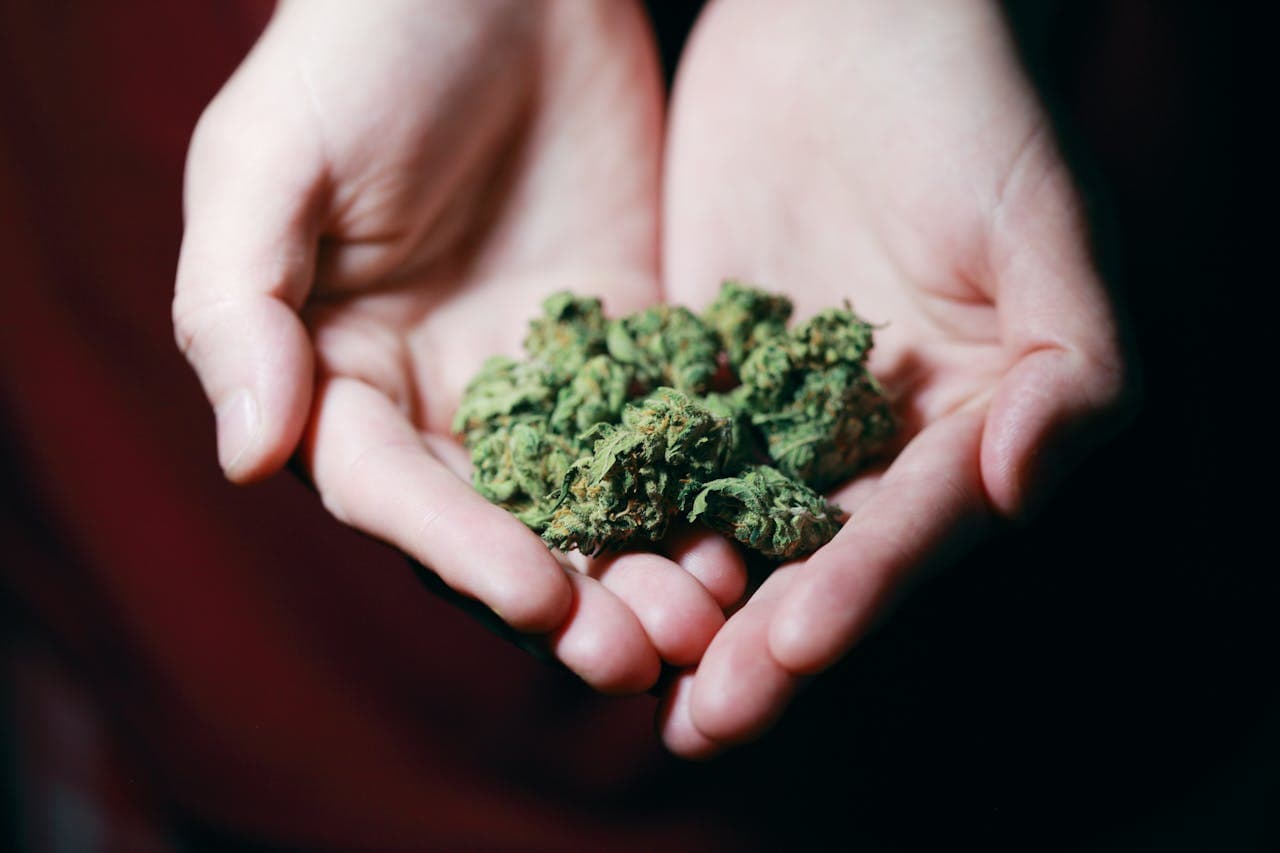
Positive Research on Cannabis
By Ann Constantino,
Photo by Alexander Grey.
Over the past year, many new studies have been published, and many more are being undertaken, that look into the effects of marijuana use, both medicinal and recreational, on human health. Below is a short digest of several of these studies and one policy development, showing some positive and promising news about the plant we in Humboldt may feel so familiar with that we might be missing the forest for the trees, so to speak.
Federal Action on Marijuana
Habitual marijuana use is at last recognized by the feds to be less likely to cause physical dependence.
On January 20, President Biden issued pardons for Americans and any lawful permanent residents of the US with federal marijuana possession convictions on their records. He also ordered the Department of Health and Human Services to make a case for changing the status of the drug derived from the cannabis plant from the most-dangerous category known as Schedule 1, where it was lumped in with heroin, LSD, and MDMA (ecstasy), to Schedule 3, a category of drugs described as not likely to cause life-threatening addiction or psychological dependence, and in many cases may even have an established and proven medical benefit.
While 38 states have already legalized cannabis for medical purposes and 24 have given the green light to recreational use, the feds are playing a bit of catch-up with the move. Advocates of cannabis use welcome the new direction at a level that has been stuck classifying weed as more dangerous than Schedule 2 substances such as cocaine, opium, oxycodone, and methamphetamine.
Habitual marijuana use is at last recognized by the feds to be less likely to cause either the physical dependence created by either Schedule 1 or Schedule 2 drugs, and the psychological dependence created is mild. An FDA report associated with the reclassification states that cannabis withdrawal is far less concerning than alcohol withdrawal, which can cause serious symptoms such as seizures, agitation, paranoia, and even death. Furthermore, the feds are finally admitting that cannabis has been proven to lessen the side effects of chemotherapy.
Promising Research
Chemical look-alikes for CBN were created and shown to be effective in treating traumatic brain injury (TBI) in fruit flies.
In other positive weed news, scientists have been looking into applications of various cannabinoids, such as the well-known THC (tetrahydrocannabinol) and CBD (cannabidiol) compounds, as well as the lesser-known CBN (cannabinol). In a study released last month by the Salk Institute, chemical look-alikes for CBN were created and shown to be effective in treating traumatic brain injury (TBI) in fruit flies. The implications of this study suggest that the less psycho-reactive chemical may have promise for treatment of not just TBI, but also Parkinson’s and Alzheimer’s disease.
The neuro-protective properties of CBN were able to be pinpointed in the research and refined into a chemical with pharmaceutical efficacy. TBI and other diseases of the brain involve the death of neurons, the cells responsible for the sending and receiving of information in the brain. While exactly how CBN prevents the dysfunction that causes neuronal death is still unclear, wherever the CBN copycat chemicals were introduced, neuronal die-off was reduced.
As more research is conducted, scientists hope that applications ranging from lessening the effects of age-related cognitive deterioration to pre-treatment of football players before games will keep more neurons functioning in our grey matter.
Recreational use of cannabis may be linked to a lowered risk of cognitive decline.
On another positive note in the maryjane world, recreational use of cannabis may be linked to a lowered risk of cognitive decline. An April 2024-published report in the journal Current Alzheimer’s Research that looked at 4,744 American adults over age 45 showed that recreational use whether through smoking, vaping, dabbing, or consuming, led to a 96% reduction in “subjective cognitive decline”. The self-reported statistics are significant because many Alzheimer’s diagnoses begin through certain self-reported changes in the memory of patients.
More research is needed to determine whether those using non-medical cannabis experience less decline because of that use, or rather those with less decline happen to also be recreational cannabis users.
Finally, a 2023 study revealed the previously unknown mechanism of CBD to reduce epileptic seizures in children. This development in the research opens the door for further, even more effective treatments of this devastating childhood disease.
As more and more research points to positive effects of medicinal and even recreational use of marijuana, along with the concurrent loosening of its classification, seen by many as the first step on an inevitable path toward federal legalization, our community may find a healthful way to redefine itself in its attempt to bounce back from the cash-crop crash experienced since 2017. We are all in this together.
Ann Constantino, submitted on behalf of the SoHum Health’s Outreach department.